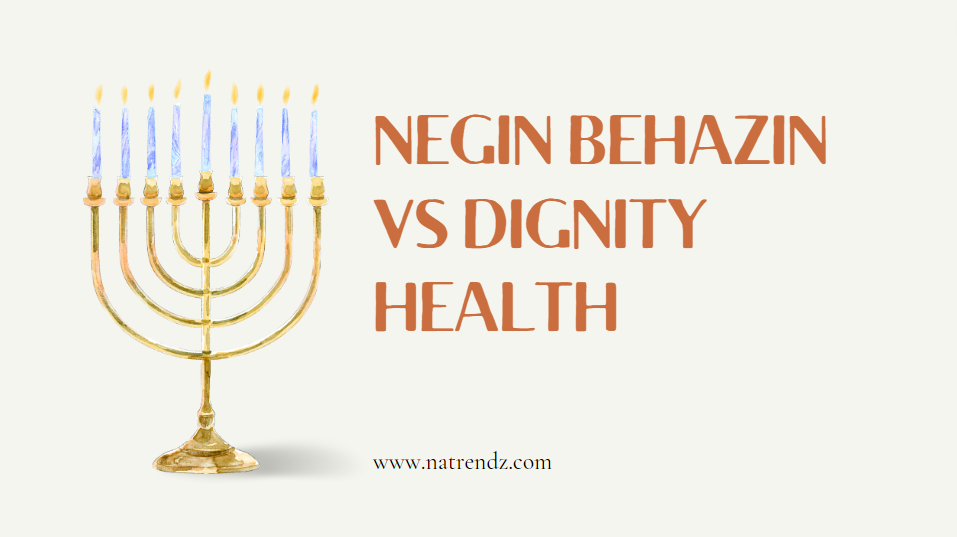Introduction Negin Behazin vs Dignity Health
In a legal showdown that has captured nationwide attention, the case of Negin Behazin vs Dignity Health has become a focal point in the ongoing fight for healthcare equality. The lawsuit, brought forth by Negin Behazin, a transgender woman, against Dignity Health, a prominent healthcare provider, sheds light on the challenges faced by marginalized communities seeking fair and inclusive healthcare. This article explores the details of the case, its implications, and the broader impact it may have on healthcare practices.
The Case: Negin Behazin vs Dignity Health
Negin Behazin filed a lawsuit against Dignity Health, alleging discrimination based on gender identity Negin Behazin vs Dignity Health. The case revolves around an incident where Behazin sought a hysterectomy as part of her gender confirmation surgery, only to be denied by Dignity Health on religious grounds. The healthcare provider cited its Catholic affiliation and the Ethical and Religious Directives for Catholic Health Care Services, which prohibit certain procedures related to reproductive health.
Also Read : What is Digit Insurance?
Implications for Transgender Healthcare Negin Behazin vs Dignity Health
The lawsuit highlights the significant barriers that transgender individuals continue to face when seeking necessary medical care Negin Behazin vs Dignity Health. The denial of Behazin’s request not only jeopardizes her gender affirmation process but also raises concerns about the broader access and availability of transgender healthcare services. This case brings to the forefront the critical need for healthcare providers to ensure that all individuals, regardless of their gender identity, receive equitable and inclusive treatment.
Religious Exemptions vs. Patient Rights
The clash between religious exemptions and patient rights lies at the heart of this legal battle. While Negin Behazin vs Dignity Health argues that its denial is based on its religious beliefs and adherence to the Catholic Church’s directives, critics argue that religious freedom should not supersede an individual’s right to receive appropriate medical care. Balancing religious freedom with the duty to provide equal and non-discriminatory healthcare services presents a complex challenge that the court will need to address in this case.
Broader Implications for Healthcare Practices
The outcome of Negin Behazin vs Dignity Health has the potential to establish a legal precedent that could impact healthcare practices across the country. The case raises questions about the responsibility of healthcare institutions to accommodate diverse patient populations while respecting religious beliefs. The court’s decision may have far-reaching consequences for other medical procedures and services that intersect with religious doctrines, forcing healthcare providers to reevaluate their policies and practices.
Addressing Disparities in Healthcare
The lawsuit also underscores the existing disparities in healthcare faced by marginalized communities Negin Behazin vs Dignity Health. Transgender individuals, in particular, experience higher rates of discrimination and inadequate access to healthcare services. The case serves as a reminder of the urgent need to address these disparities and ensure that all individuals, regardless of their gender identity or any other characteristic, receive unbiased and quality care. Healthcare providers must work towards creating an environment where inclusivity, respect, and dignity are upheld for all patients.
Advocacy for Healthcare Equality
The Negin Behazin vs Dignity Health case has sparked a significant amount of attention from advocacy groups fighting for LGBTQ+ rights and healthcare equality. These organizations recognize the importance of this legal battle in challenging discriminatory practices and promoting equal access to healthcare services for all. The case serves as a rallying point for raising awareness about the barriers faced by marginalized communities and advocating for systemic changes that prioritize patient well-being over religious affiliation.
Conclusion
The legal battle between Negin Behazin vs Dignity Health holds immense significance for the pursuit of healthcare equality. It sheds light on the challenges faced by transgender individuals and the need for inclusive healthcare practices. The court’s decision will not only impact the outcome of this specific case but may also set a precedent for future disputes involving religious exemptions and patient rights.

